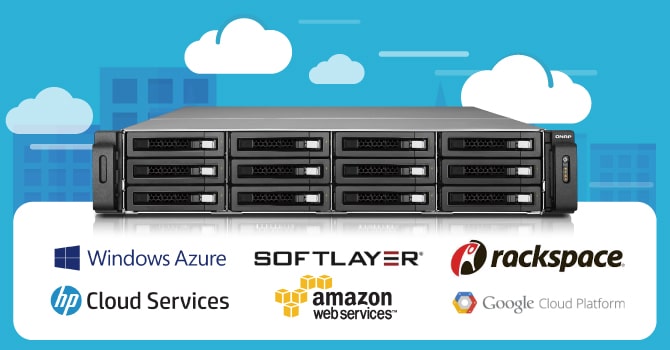QNAP Systems has announced the release of their CloudBackup Station, which adds more support for backing up data stored on a QNAP NAS devices to cloud storage services including Amazon S3, Amazon Glacier, Google, RackSpace, HP Cloud, IBM SoftLayer, WebDAV-compatible cloud storage. In addition, it gives users the ability to build a comprehensive plan for disaster recovery.
QNAP Systems has announced the release of their CloudBackup Station, which adds more support for backing up data stored on a QNAP NAS devices to cloud storage services including Amazon S3, Amazon Glacier, Google, RackSpace, HP Cloud, IBM SoftLayer, WebDAV-compatible cloud storage. In addition, it gives users the ability to build a comprehensive plan for disaster recovery.
With this release, more cloud backup apps, such as S3 Plus, Glacier, Google Cloud Storage, OpenStack Swift and WebDAV, have been added and integrated with the CloudBackup Station. QNAP indicates that the easy-to-use interface allows users to seamlessly manage various cloud storage services through a corresponding app, monitor backup status with job logs, and arrange manual or scheduled backup tasks. In addition, CloudBackup Station enables the backup of data from one cloud account to different regions (e.g. Amazon S3, Amazon Glacier and Google Cloud Storage). CloudBackup Station also safeguards all data with an SSL connection and an AES 256-bit encryption to help ensure that user content stays protected both during file transfer and when stored on the public cloud.
To increase its cost-efficiency, CloudBackup Station supports backup file compression, regularly removes files based on pre-defined settings, and avoids backing up unnecessary data. It also allows users to filter files by type, size and date, which makes sure that only selected files are retained on the cloud.
Additionally, CloudBackup Station supports multi-job execution and multi-thread data transfer. It does this by splitting large files into smaller parts, which QNAP claims significantly speeds up the file transfer rate with improved work efficiency. File preview on the cloud is also enabled in order to save time from downloading superfluous files for data recovery.
Availability
CloudBackup Station is now available through the QTS App Center.

